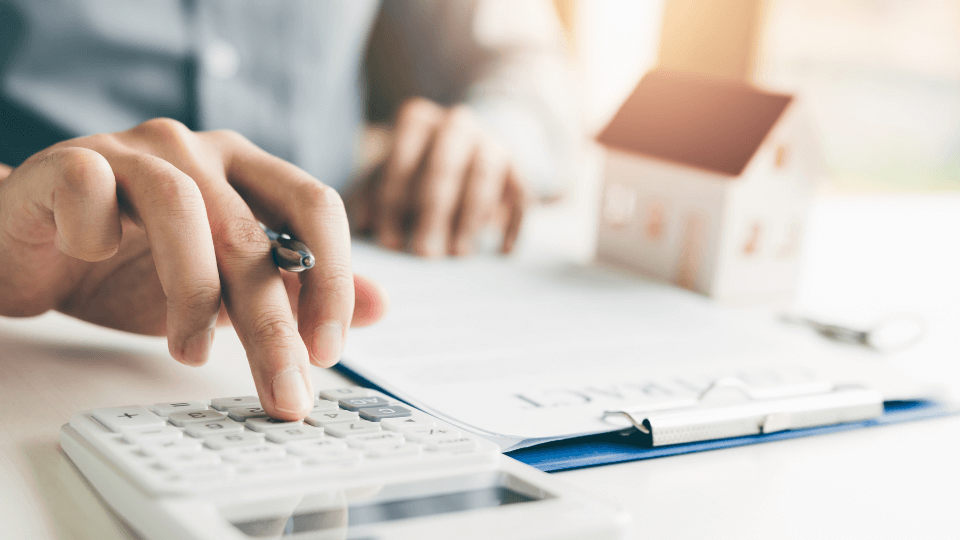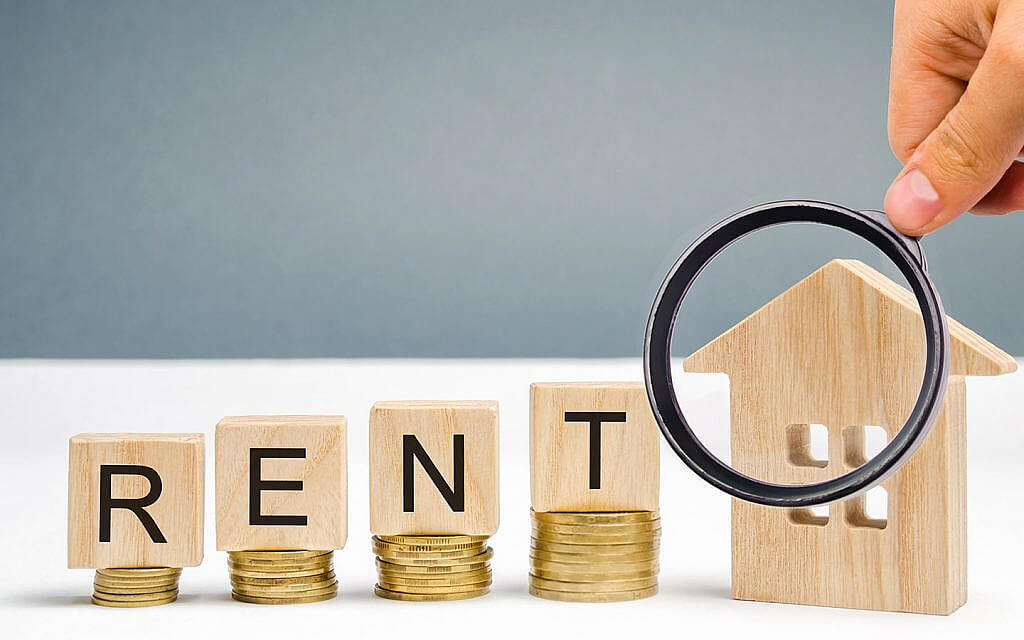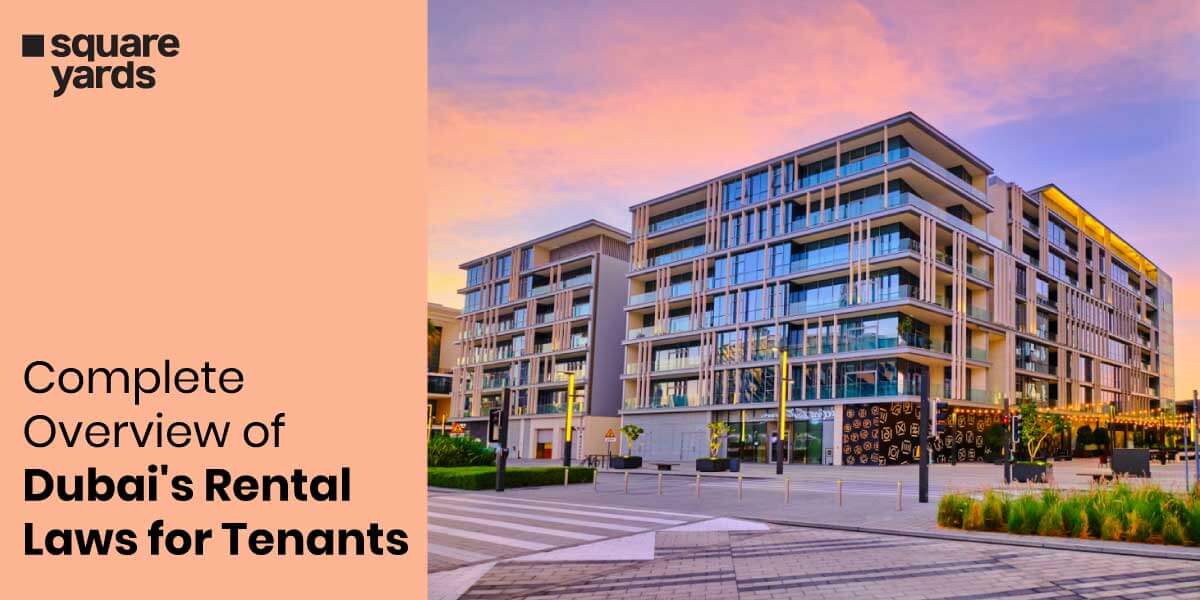First, let’s clarify: Renting in Dubai isn’t just about finding a place to hang your hat. It’s about creating a respectful and responsible relationship between you, the tenant, and your landlord. navigating tenant rights and responsibilities can be like a dance; we’re here to teach you the steps. Renting in Dubai includes embracing the city’s unique blend of cultures, respecting the space you call home and playing your part in the community. Tenant’s responsibilities can include understanding your financial commitments, the dos and don’ts of decorating, or the etiquette of interacting with your neighbours. Here are some tenant rights and responsibilities that every tenant should know. Welcome to Dubai, where every tenant has a role in weaving the fabric of this dynamic city.
Vital Role Of Tenant Rights And Responsibilities

In Dubai, where the skyline touches the clouds and the streets are humbled with diverse cultures, the government plays a crucial role in ensuring everyone has a fair and pleasant living experience. Dubai provides safe and comfortable housing by establishing tenant rights and responsibilities. This includes but is not limited to ensuring comfortable homes, paying rent on time, respecting the property, and more. All of this helps maintain a unique harmony in the landlord-tenant relationship. Tenancy Law in Dubai maintains a balance. It is like the city – a blend of tradition and modernity, where both parties clearly define their roles. These tenancy contracts help ensure disputes are rare and everyone can enjoy the vibrant life Dubai offers. This approach not only keeps rental agreements fair and straightforward but also weaves a fabric of mutual respect and understanding, crucial for the dynamic lifestyle of Dubai.
Dubai Tenancy Protocols
You could be gazing at the Burj Khalifa from your balcony or finding solace in the quieter corners of the city. Tenant rights Dubai are your shield. They help safeguard your interests and well-being in a city that is as protective of its residents as it is ambitious in its growth. This introduction to tenant rights and responsibilities Dubai is the first step in navigating this global hub’s vibrant and diverse rental landscape, ensuring your journey as a tenant is as smooth as the desert sands meeting the Arabian Sea.
-
Laws related to Maintenance and Repair
When delving into the rental market of Dubai, it’s essential to understand the nuances of tenant responsibilities, especially in terms of property maintenance and repair. While navigating your way through the options to find the perfect rental, keep in mind that, typically, your landlord is in charge of most maintenance and repair work. However, this can vary based on your specific rental agreement. Generally, for apartments, tenants are expected to take care of repair and maintenance for a certain budget bracket. If the maintenance costs are higher, then the landlord must cover them. Read the following blog to learn more about maintenance laws in Dubai and better understand who pays for what.
-
Laws Relating to Contracts and their Renewal
Dubai allows for contract renewals for tenants with a reassuring level of flexibility and security. You can renew your agreement provided you notify your landlord at least 90 days before the contract’s expiration. Additionally, tenants are generally protected from eviction without just cause. Landlords must provide valid reasons, as outlined in the Landlord and Tenant Law if they require the property back. This ensures you are not uprooted unexpectedly or without due process as a tenant. At the heart of these provisions is the commitment to a fair and just rental experience in Dubai. As a tenant, you are entitled to a process free from discrimination, alongside rights to health, safety, habitability, prompt responses to issues, and respect for your privacy. These rights form the cornerstone of your Dubai rental journey, ensuring stability and peace of mind.
Compliance and Commitments to Follow

If there are rights that follow the people, then there are also essential tenant responsibilities that must be fulfilled to maintain a fair balance. Renters must understand and adhere to these responsibilities, ensuring a harmonious tenancy. Renting is often preferred over buying in the country anyway. Under the Real Estate Regulatory Agency (RERA) contract, key points include timely rent payment, not altering the property without the landlord’s consent, and returning it to its original condition, except for normal wear and tear, at lease end. Tenants usually handle government taxes and fees and should only remove any improvements made if agreed upon. The following are the important detailed duties one must complete as a tenant in Dubai. By familiarising yourself with these duties, renters can ensure a smooth and compliant living experience in this vibrant city.
-
Regarding Security Deposits
In Dubai, when you rent a property, whether a shop or an apartment, one of your responsibilities is to pay a security deposit to your landlord. This deposit acts as a safety net for landlords. If there’s any damage to the property when you leave, they can use this deposit to cover the repair costs. But don’t worry, this deposit is refundable. When your rental contract ends and if everything is in good shape, you get your deposit back. The Dubai Rental Law (Article 20) says landlords can ask for this deposit to ensure the property is well maintained, but they must return it when you move out. Choosing your landlord carefully is important, as some might try to keep part of your deposit unfairly. Knowing how to get your deposit back in Dubai can help you avoid any trouble with this.
-
Punctual Payments and Property Care
In Dubai, as a tenant, you have two main responsibilities. First, as agreed in your contract, you need to pay your rent on time. Second, if you want to make any changes or repairs to your home, you must get permission from your landlord first. The Dubai Tenancy Guide (Article 19) explains that you should care for a property like yours. But, if you plan to renovate or do major maintenance, you need your landlord’s approval and official licenses from the right authorities. Be careful with renovations because if you damage the property, your landlord might have the right to ask you to leave immediately. So, always check with your landlord before making big changes to your home.
-
Upholding Property Conditions Throughout Your Stay
In Dubai, when you’re ready to move out of a rented property, you must return it in the same condition as when you first moved in. This means the place should look the same as at the start of your rental period, except for the usual small signs of living there, like minor scuffs or normal wear and tear. The Dubai Tenancy Guide (Article 21) says that when your rental contract ends, you should give the property back to the landlord in its original state, apart from the usual little changes that happen over time or any damage that wasn’t your fault. If there’s any disagreement about the property’s condition, this issue can be taken to a special Tribunal that will make a decision. It’s also good to clearly understand what ‘ordinary wear and tear’ is with your landlord. This should be written in your Ejari contract to clarify when to move out.
-
Seeking Landlord Consent Before You Sublease

In Dubai, if you’re renting a place and thinking about letting someone else rent it from you (subleasing), remember it’s important to get your landlord’s written okay first. According to the rules (Article 24), you can’t just decide to sublease your rented home or part of it to someone else without your landlord agreeing to it in writing. So, if you have plans to turn your rented place into a holiday home for others, or if you want someone else to stay there and pay your rent, talk to your landlord and get their approval in writing before you do anything.
-
Filling Your Government Dues And Taxes
In Dubai, as a tenant, you usually must pay certain government fees and taxes related to your rental property unless your rental contract says otherwise. According to the rules (Article 22), you must pay any government charges or surcharges for using the place you’re renting. This could include costs like setting up your DEWA (Dubai Electricity and Water Authority) account or government housing fees. So, when you rent a place in Dubai, remember to check your contract to see if it says you must pay these fees because they’ll be your responsibility in most cases.
-
Remodeling A Rented Space
When you rent a place in Dubai and make any changes or add something to it, you usually can’t take these things away when you move out. This is especially true for big changes you might have made. The rules (Article 23 of Dubai Rental Law) say that unless you and your landlord agreed differently, you should leave any improvements you made when you hand back the property. If you added something or changed part of the place while living there, you should only remove it if your lease ends unless your rental contract says it’s okay. If you want to be able to take your additions with you when you leave, it’s important to talk about this with your landlord and make sure it’s written in your contract. This way, you can avoid any issues and ensure you and your landlord are happy when it’s time to move out.
Tenant Guidelines Under RERA
Dubai has a Land Department that ensures that all land disputes are handled in a fair and equal assessment. This is the Real Estate Regulatory Agency. RERA tenancy contract rules help to ensure fairness, clarity, and stability in the rental market. From outlining both parties’ responsibilities and rights to setting up dispute resolution mechanisms, RERA laws in Dubai play a pivotal role in maintaining the harmony of Dubai’s rental landscape.
-
- Law No. (26) of 2007: This law outlines how landlords and tenants should interact in Dubai, with clear rules for rental agreements to keep the property market running smoothly.
- Law No. (33) of 2008: It updates Law No. (26) of 2007 and mandates that all rental contracts be registered with RERA via Ejari, ensuring a property isn’t rented out twice.
- Decree No. (26) of 2013: Establishes the Rent Disputes Settlement Centre in Dubai, which resolves all kinds of rental disagreements.
- Article 6 of Law (26) of 2007 States that if a tenancy contract in Dubai ends and the tenant stays without the landlord’s objection, the lease automatically extends for another year under the same conditions.
- Decree No. (43) of 2013: Regulates how much rent can increase in Dubai, helping to control rental costs.
Leasing and Litigation
Whether you’re a long-term resident or a newcomer, tenant laws in Dubai act as guidelines that are essential in fostering a respectful and enjoyable tenancy. They embody Dubai’s commitment to offering a world-class living experience. So, as you embark on your rental journey in this vibrant city, remember that these laws are there to guide and protect you, ensuring that your time in Dubai is as splendid as the city itself.
Recommended for you :
|
Guide To Dubai Property Maintenance |
|
|
When Tenant Not Paying Rent |
|
|
Know The Rental Dispute in Dubai |
|
|
Explore Ejari System |
Frequently Asked Questions (FAQs)
Article 14 of Dubai's Rental Law, specifically Law No. (26) of 2007 addresses rent increases. It requires landlords to give a 90-day notice before increasing rent, ensuring changes align with the market rates determined by RERA's rental increase calculator. This article helps maintain a balanced and fair rental market in Dubai.
Article 16 of Dubai's Tenancy Law addresses the renewal of tenancy contracts, stating that unless otherwise agreed, the renewal will be under the same terms and conditions of the original warranty. This provision aims to ensure stability and predictability in rental agreements.
In Dubai, a landlord must give a tenant a 12-month notice, in writing and through notary public or registered mail, to vacate a property for specific reasons outlined in the law.
No, a landlord cannot evict a tenant in Dubai without a valid reason. The law specifies allowable grounds for eviction, ensuring protection for tenants against arbitrary decisions.
In Dubai, a landlord must provide a tenant with a 90-day notice before increasing the rent, per the tenancy law. This notice should be given before the lease renewal.
In Dubai, the landlord is generally responsible for major maintenance and repairs in a rental property, while the tenant handles minor repairs and everyday maintenance, per the tenancy agreement.
In Dubai, a landlord cannot enter a rental property without the tenant's permission, except in certain circumstances like emergencies. The tenant rights and responsibilities Dubai privacy is protected under the tenancy laws.
To file a complaint with the Dubai Rental Dispute Center, submit the required documents online, including the tenancy contract and Emirates ID, along with a form detailing the dispute and the applicable fee. The RDC then schedules a hearing to resolve the issue.
To guard against unfair rental practices in Dubai, tenants should familiarise themselves with tenancy laws, register agreements with Ejari, maintain records of landlord interactions, and use the Dubai Rental Dispute Center for resolutions. What is Article 14 of the Dubai rental law?
What is Article 16 of Dubai's tenancy law?
How much notice does a landlord have to give a tenant to move out in dubai?
Can a landlord evict a tenant in Dubai without a valid reason?
How much notice should a landlord provide a tenant before increasing the rent?
Who is responsible for maintenance and repairs in a rental property in dubai?
Can a landlord enter a rental property in Dubai without the tenant's permission?
What is the process for filing a complaint with the dubai rental dispute center?
How can tenants protect themselves from unfair rental practices in dubai?




